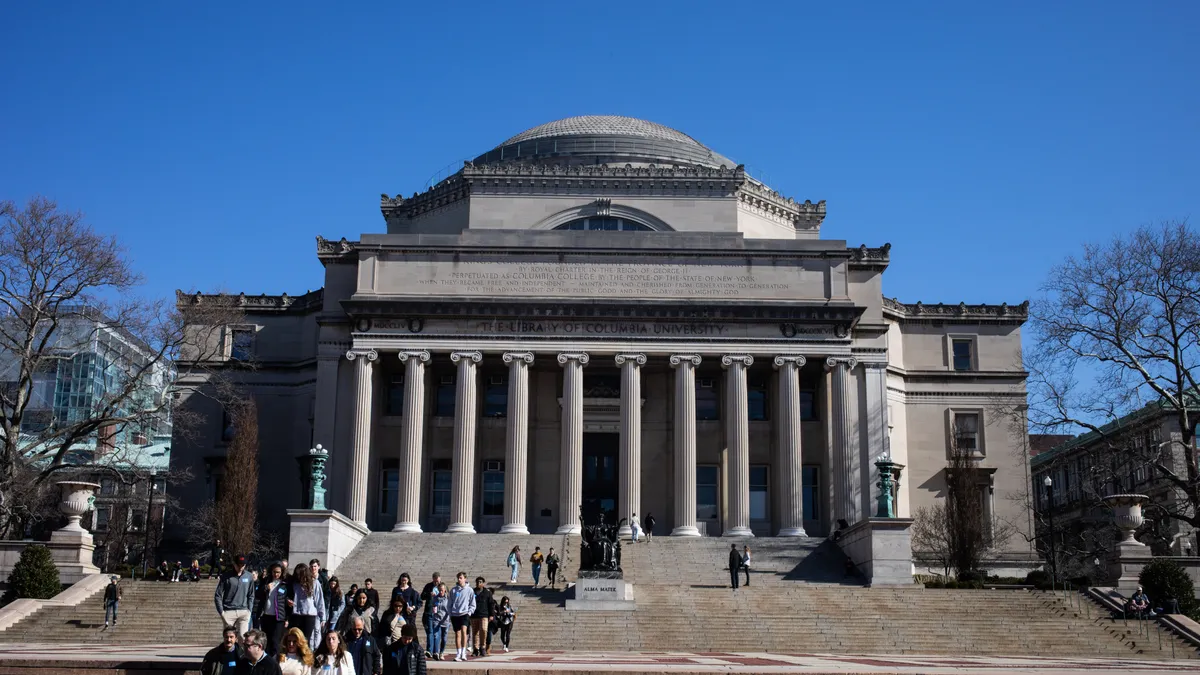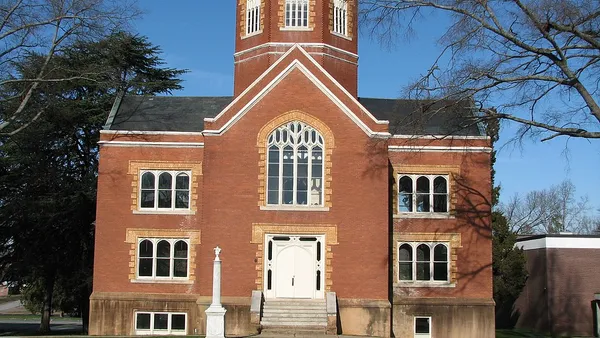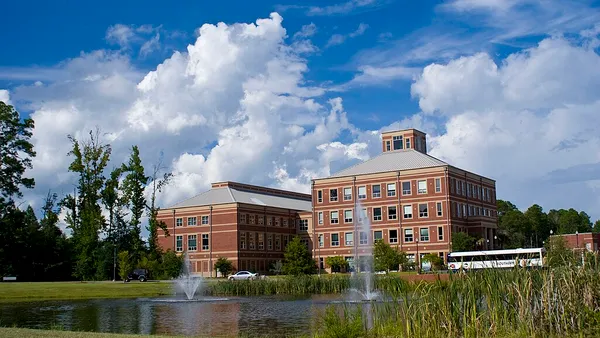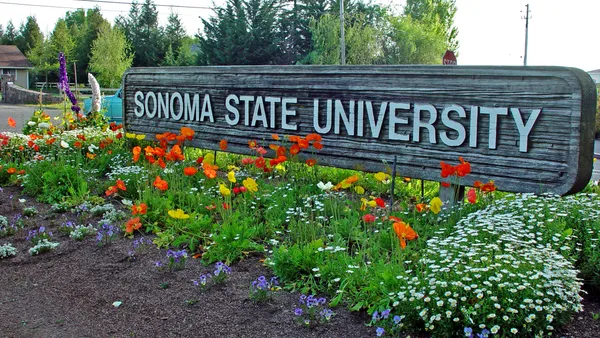Dive Brief:
- U.S. News and World Report delisted Columbia University from this year’s Best Colleges rankings, saying the Ivy League institution failed to validate data it submitted to the publication that it uses to construct the influential database.
- The magazine said Thursday that Columbia had not responded to multiple requests to confirm the veracity of certain data points, including its student-faculty ratios and undergraduate class sizes.
- U.S. News’ move follows Columbia announcing late last month it will not participate in next year’s rankings amid an internal investigation into its data submissions. One of Columbia's professors earlier this year publicly alleged data in the university's rankings profile did not match that from other sources.
Dive Insight:
The drama surrounding Columbia’s place in the rankings began in February, when mathematics professor Michael Thaddeus posted on his website an analysis of information the university had provided to U.S. News.
Thaddeus said that evidence suggested Columbia had misrepresented itself on several of the metrics U.S. News uses to determine the rankings, like how much it spends on instruction. He compared the data in Columbia’s U.S. News ranking to that in its financial statements and other sources.
At first, Columbia stood by its data. However, on the last day of June, it said it would drop out of the 2023 rankings as it had not yet finished reviewing Thaddeus’ allegations.
U.S. News Chief Data Strategist Robert Morse, who helms the rankings, first reached out to Columbia in March to confirm the accuracy of submitted data.
But the publication said in a statement Thursday that “Columbia has been unable to provide satisfactory responses to the information U.S. News requested.”
Thus, U.S. News bumped Columbia to "unranked" in its 2022 National Universities, 2022 Best Value Schools, and 2022 Top Performers on Social Mobility lists.
Columbia will remain on other U.S. News rankings, including its graduate-level schools and programs, the publication said. They used separate data sources that have not been called into question.
“When schools do not accurately report their data, U.S. News will review the matter on a case-by-case basis to determine appropriate remedial actions,” the publication said.
University spokesperson Ben Chang said in an emailed statement that Columbia was disappointed in U.S. News’ decision but “we consider this a matter of integrity and will take no shortcuts in getting it right.”
Knocking Columbia off of the rankings will likely deal a blow to the university’s reputation and spur more criticism of the rankings, which have come under fire for students and families overemphasizing them in college-decision making.
The rankings have been hit by other problems with their data accuracy — this year, University of Southern California dropped out of the graduate school rankings for its Rossier School of Education amid revelations its dean had submitted incorrect data. Also this year, a former Temple University business school dean was sentenced to 14 months in prison and ordered to pay a $250,000 fine after being found guilty of similarly falsifying data.













